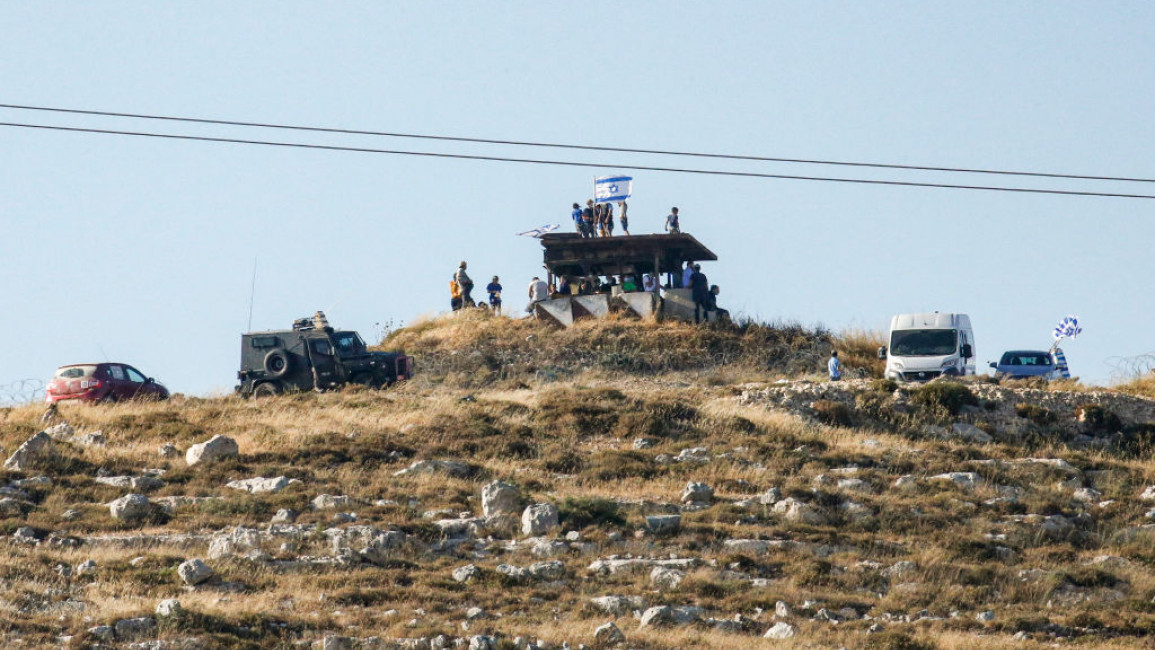Israeli settlers attempt 'largest settlement expansion in Hebron in two decades'
Jewish settlers in the West Bank occupied city of Hebron said on Thursday they had begun work in the construction of a new neighbourhood.
"We are clearing the area for the beginning of the new project," Yishai Fleisher, spokesman for the settlers, told AFP.
Israel approved the construction four years ago on an Israeli military base and allocated more than $6 million to it.
The Israeli anti-settlement group Peace Now is suing to stop the project, which it says is the first major expansion of the Jewish settlements in Hebron in two decades.
The neighbourhood would eventually contain 31 homes, Fleisher said.
About 1,000 Jewish settlers live in Hebron under heavy Israeli military protection, with more than 200,000 Palestinians living under Israeli military occupation. In the broader area of the occupied West Bank and East Jerusalem, more than 600,000 Israeli Jews live in constructions considered illegal under international law.
Israel occupied the West Bank, including Hebron, along with the Gaza Strip and east Jerusalem in 1967. Israel's occupation of the West Bank has long been seen as an obstacle to peace and Palestinian statehood.
Hebron contains a holy site known to Muslims as the Ibrahimi mosque and to Jews as the Cave of the Patriarchs, which is revered by both faiths.
Palestinian Hebron resident Issa Amro, an activist against settlements, said the new neighbourhood would exacerbate friction in the area.
"It means an increase in violence. It means the restrictions on us as Palestinians. It means changing the identity of our own city to an Israeli, Hebrew city," he said.
The construction was revealed by Peace Now, which published video showing a digger at work.
The Israeli military body responsible for civilian affairs in the West Bank, COGAT, approved the new settler units in central Hebron in 2017.
Peace Now and the Hebron municipality challenged the apartment project in Jerusalem's district court and lost, said Hagit Ofran of Peace Now.
The area had previously served as a bus station before the Israeli army closed it for security reasons, Ofran said.
"Now Israel decided there was no military purpose anymore, there is no security need, so it should return to the (Palestinians)," Ofran said. "But instead of returning it, they are taking it and giving it to settlers."
Fleisher said no court issued an injunction against construction.
Ofran said her group and Hebron are now appealing to Israel's supreme court.


![President Pezeshkian has denounced Israel's attacks on Lebanon [Getty]](/sites/default/files/styles/image_684x385/public/2173482924.jpeg?h=a5f2f23a&itok=q3evVtko)





